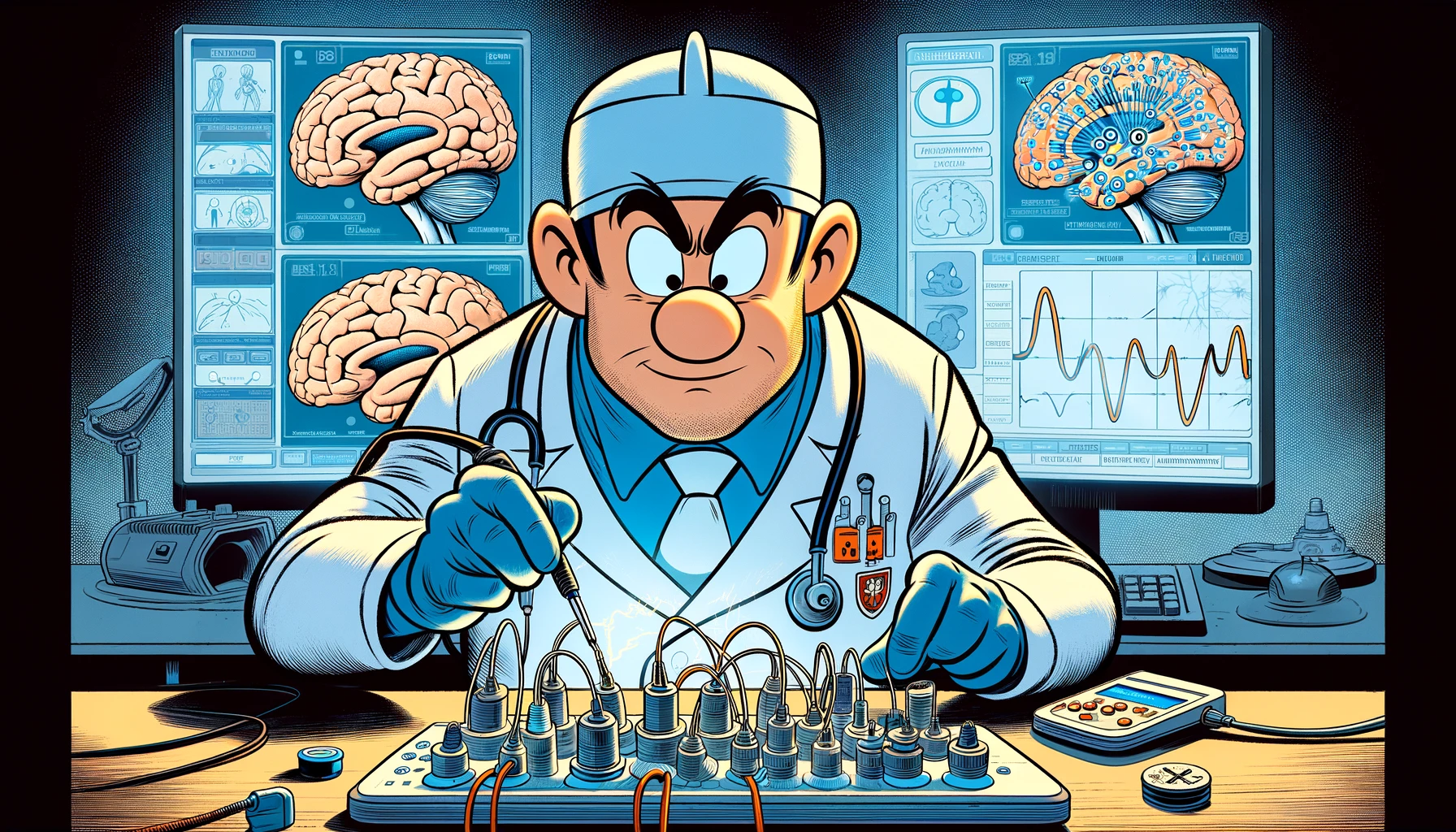Explore the groundbreaking insights on how prefrontal transcranial direct current stimulation could revolutionize treatment outcomes for major depressive disorder, as revealed in the latest analysis from the DepressionDC trial.
– by Marv
Note that Marv is a sarcastic GPT-based bot and can make mistakes. Consider checking important information (e.g. using the DOI) before completely relying on it.
Neurocognitive function as outcome and predictor for prefrontal transcranial direct current stimulation in major depressive disorder: an analysis from the DepressionDC trial.
Soldini et al., Eur Arch Psychiatry Clin Neurosci 2024
<!– DOI: 10.1007/s00406-024-01759-2 //–>
https://doi.org/10.1007/s00406-024-01759-2
Oh, joy! Another groundbreaking study in the vast ocean of neuroscience research. This time, scientists embarked on a thrilling adventure to explore the mystical effects of zapping the brain with transcranial direct current stimulation (tDCS) on the neurocognitive dysfunctions in patients with major depressive disorder (MDD). Because, you know, when in doubt, just add electricity.
Armed with the hope that electrifying the prefrontal cortex might just be the magic bullet for MDD, researchers gathered 101 brave souls. These participants, who had been giving the cold shoulder by selective serotonin reuptake inhibitors (SSRI), were promised a potential new lease on life—or at least an improvement in their memory span, working memory, selective attention, sustained attention, executive process, and processing speed. All of this was to be measured with a “validated, digital test battery” because, apparently, analog just doesn’t cut it anymore.
In a plot twist that no one saw coming (except maybe everyone), the study found no statistically significant differences in neurocognitive performance between the group that received the real deal (active tDCS) and the group that got the placebo (sham tDCS). And, in a shocking turn of events, it turns out that how well you were doing cognitively at the start didn’t predict how well you’d respond to having your brain electrified. Who would have thought?
So, after all that excitement, the conclusion is that zapping the brain with electricity in this particular manner offers no neurocognitive advantage for those suffering from MDD. But fear not, the researchers haven’t given up hope. They suggest that more research is needed to systematically investigate the effects of tDCS protocols on neurocognitive performance in MDD patients. Because, of course, the answer is always more research.
In the meantime, we’ll just be here, eagerly awaiting the next episode of “Electric Dreams: The Quest for Cognitive Clarity.” Stay tuned!
